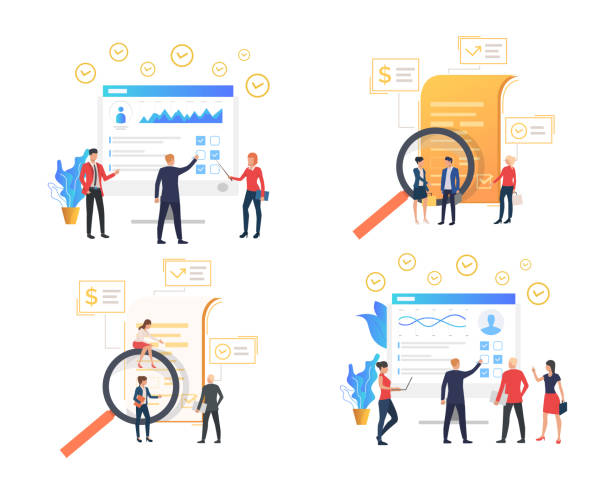What is SEO and Why is it Important?
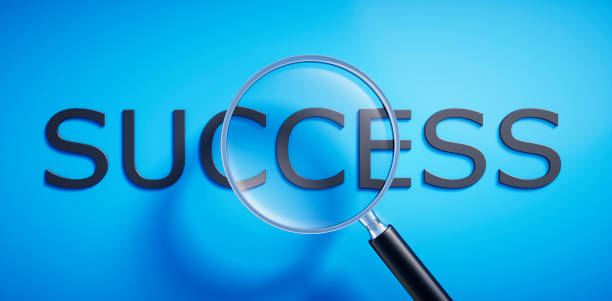
In today’s digital world, the visibility of your business in search engines, especially Google, is of vital importance.
This is where the concept of #SEO or Search Engine Optimization comes in.
SEO is a set of techniques and strategies used to increase a website’s ranking in organic (unpaid) search results.
The main goal of SEO is to improve the quality and quantity of traffic directed to your website through search engines.
Imagine millions of users daily searching for their questions on Google; if your website is on the first pages of search results, the chance of being seen and attracting customers will be significantly higher.
This complex process requires a deep understanding of how Google’s algorithms work and users’ needs.
The importance of SEO is not limited to increasing traffic, but also helps in building trust and credibility for your brand.
Websites that rank higher appear more credible and trustworthy to users.
In fact, SEO is a long-term investment that yields sustainable and lasting results.
This section provides an explanatory overview for a basic understanding of SEO.
With increasing competition in the online space, businesses that do not prioritize SEO can easily get lost in the sea of information and fall behind.
Therefore, learning and implementing SEO strategies is essential for any business aiming to succeed in the digital world.
Next, we will discuss different types of SEO and how to implement them.
Is your company’s website as professional and trustworthy as it should be? With specialized corporate website design by Rasawweb, create an online presence that reflects your credibility and attracts more customers.
✅ Build a powerful and professional image for your brand
✅ Convert visitors into real customers
⚡ Get a free consultation now!
Types of SEO and its Key Approaches
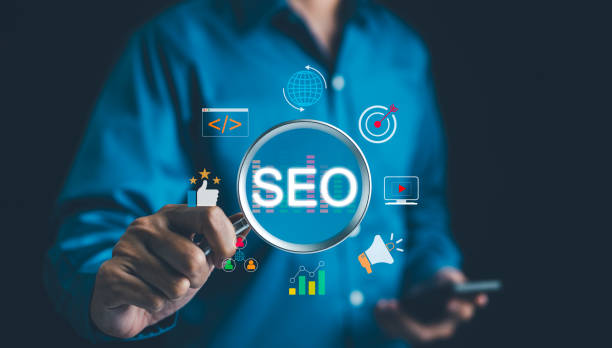
SEO is a broad concept that can be divided into three main categories: On-Page SEO, Off-Page SEO, and Technical SEO.
Each of these categories focuses on different aspects of your website and online presence, but all ultimately lead to a common goal: improving your visibility in search engines.
Understanding these distinctions is crucial for formulating a comprehensive SEO strategy.
On-Page SEO: This section deals with optimizing elements within your website itself.
It includes topics such as selecting relevant keywords, optimizing title and meta descriptions, URL structure, proper use of Heading tags, content quality, and image optimization.
On-page SEO focuses on ensuring that search engines can correctly understand your content and present it to relevant users.
The instructive nature of this section is essential for any webmaster who wants complete control over their site.
Off-Page SEO: This type of SEO involves activities performed outside your website to increase its authority and trust.
The most important part of it is Link Building, meaning other websites linking to your site.
Social media signals and mentions of your brand on other websites also fall into this category.
These activities show search engines that your website is authoritative and trustworthy.
Technical SEO: This section addresses the technical aspects of your website that affect search engines’ ability to crawl and index your site.
Issues such as site loading speed, mobile-friendliness, site structure, robots.txt file, XML sitemap, and the use of structured data (Schema Markup) are among the key issues in technical SEO.
A strong technical infrastructure is the foundation of a successful SEO strategy.
On-Page SEO and its Crucial Components
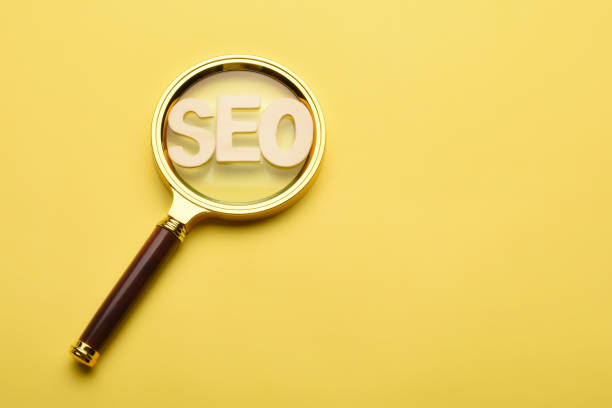
On-Page SEO is the cornerstone of any search engine optimization strategy.
This section provides guidance on how to configure your website’s content to be both understandable for search engines and engaging and useful for users.
Choosing relevant keywords is the first and perhaps most important step in On-Page SEO.
These keywords should be related to your business and have a suitable search volume.
Keyword research is a specialized foundation for targeted content production.
After selecting keywords, they should be used naturally and purposefully in various page elements.
The page title (Title Tag) and meta description, which are displayed in search results, must be engaging and contain primary keywords to encourage users to click.
Proper use of Heading tags (H1, H2, H3, etc.) also helps search engines understand the structure and importance of different sections of your content.
Furthermore, the quality and depth of content are of high importance.
Your content should be original, comprehensive, and useful, answering users’ questions.
Optimizing images by using Alt tags and compressing them to increase page loading speed are also important aspects of On-Page SEO.
Finally, a friendly and understandable URL structure for users and search engines significantly helps improve page SEO.
In the table below, you can see some of the most important components of On-Page SEO:
| On-Page SEO Element | Importance | Key Points |
|---|---|---|
| Keywords | Foundation for understanding page topic | Comprehensive research, natural usage |
| Page Title (Title Tag) | First thing the user sees | Contains keyword, engaging, character limit |
| Meta Description | Brief content description | Engaging, contains keyword, encourages clicks |
| Heading Tags (H1-H6) | Structuring content | Only one H1, hierarchical use |
| Page Content | Main value of the page | Comprehensive, useful, unique, addresses user needs |
| Image Optimization | Speed and accessibility | Compression, proper Alt tag, relevant file name |
Off-Page SEO and Building Online Authority

After optimizing the internal aspects of your website, it’s time for Off-Page SEO, which focuses on increasing your site’s authority and credibility in the eyes of search engines.
The most important factor in Off-Page SEO is link building.
When other websites link to your content, it signals to search engines that your content is valuable and trustworthy.
The more numerous and higher quality the inbound links (Backlinks), the higher your Domain Authority, which in turn helps improve your ranking in search results.
But link building doesn’t just mean getting any link.
Link quality is more important than quantity.
Links from authoritative websites relevant to your field of activity have much greater value.
Link-building strategies include building natural links through producing excellent content that others refer to, advertorials on reputable sites, and participating in relevant online communities.
Although this process is time-consuming, its results will be sustainable and valuable for SEO.
In addition to link building, other factors also play a role in Off-Page SEO.
Social media activity, mentions of your brand on various websites and media, and participation in relevant online forums all help increase your brand’s visibility and credibility.
Although these signals do not directly affect rankings, they can indirectly help your SEO by increasing brand awareness and driving traffic.
This section gives you an analytical understanding of how to build online authority for your website and demonstrates how off-site activities are also essential for SEO success.
Are you tired of your company’s website not meeting your expectations? With Rasawweb, design a professional website that truly represents your business.
✅ Increase the attraction of new customers and sales leads
✅ Increase your brand’s credibility and trust among your audience
⚡ Get a free website design consultation!
Technical SEO and Strong Website Infrastructure
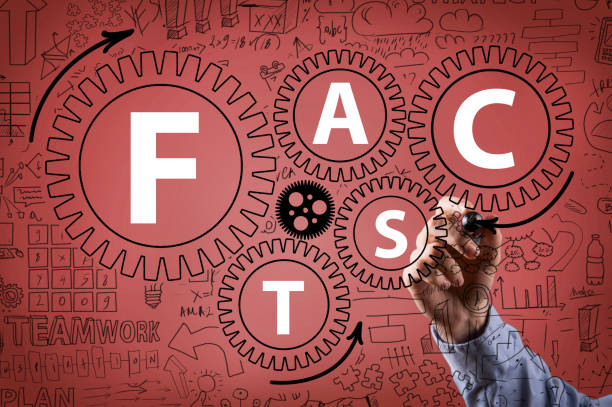
Technical SEO may be less apparent than the other two types, but it is the foundation of a website with strong SEO.
This section focuses on optimizing the technical aspects of the website to ensure search engines can easily crawl, index, and ultimately rank your site.
If your site’s technical infrastructure has problems, even the best content and strongest links cannot help you achieve a high ranking.
One of the most important factors is site loading speed.
Both users and search engines prefer fast websites; slow sites can lead to high bounce rates and lower rankings.
Mobile-friendliness also has crucial importance.
Given the increasing use of mobile for searching, Google uses a Mobile-First Indexing approach, meaning it considers your site’s mobile version for indexing and ranking.
Therefore, ensuring responsiveness and a good user experience on mobile is very essential.
Site Architecture should also be logical and easy to navigate so that users and search engine bots can easily find different pages.
Using HTTPS protocol for site security, having a robots.txt file to guide bots, and an XML sitemap to help fully index pages are other specialized technical SEO measures.
Utilizing structured data (Schema Markup) can also help search engines better understand your content and display it in an explanatory and richer form in search results (Rich Snippets).
This can significantly increase your Click-Through Rate (CTR).
A website with a strong technical infrastructure not only provides a better user experience but also paves the way for SEO success.
Valuable Content: The Backbone of SEO

At the heart of every successful SEO strategy is high-quality and valuable content.
Search engines, especially Google, are increasingly focusing on the quality and relevance of content to user needs.
Producing content that is comprehensive, unique, accurate, and responsive to user questions not only helps increase your ranking but also makes users spend more time on your site and increases the likelihood of their return.
This content-centric approach is the cornerstone of modern SEO.
Your content should be able to become thought-provoking content, meaning it makes users think or offers new solutions that are very useful to them.
This type of content not only attracts organic traffic but can also go viral and earn natural backlinks, which are extremely valuable for off-page SEO.
Diversity in content formats is also important; in addition to text articles, using videos, infographics, podcasts, and webinars can attract more audiences and improve the user experience.
Keeping content up-to-date and regularly publishing new materials are also important SEO factors.
Search engines love fresh content and give higher scores to sites that consistently produce valuable content.
Creating a content calendar and adhering to it helps you maintain a steady flow of new content.
Alongside these, entertaining content can also play an important role in attracting and retaining an audience.
This type of content, even if not directly related to your main keywords, can increase brand awareness and bring users back to your site.
Ultimately, a balance between informative, analytical, explanatory, and entertaining content transforms your content strategy into a powerful force in SEO.
SEO Tools and Performance Metrics

To ensure that your SEO efforts are effective, it is necessary to continuously monitor and analyze your website’s performance.
Fortunately, powerful tools are available to assist you in this area.
Google Analytics and Google Search Console are two free and essential tools from Google that provide comprehensive information about site traffic, keywords, indexing issues, and overall site performance in search results.
The informative and analytical reports from these tools are crucial for any SEO specialist.
In addition, there are paid and more specialized tools such as Ahrefs, SEMrush, and Moz that provide advanced capabilities like competitor analysis, in-depth keyword research, and backlink profile examination.
These tools help you identify new opportunities and optimize your strategies based on accurate data.
But more important than the tools is understanding the key SEO metrics that indicate your success.
Some of the most important SEO metrics include: Organic Traffic, which shows the number of visitors coming through search results, Keyword Rankings, Click-Through Rate (CTR), Bounce Rate, and Conversion Rate from organic traffic.
Also, user time on site and pages visited are important analytical metrics that indicate the quality of user experience and the relevance of your content to user needs.
By continuously monitoring these metrics, you can identify the strengths and weaknesses of your SEO strategy and take steps to improve them.
| SEO Metric | Explanation | Importance |
|---|---|---|
| Organic Traffic | Visitors from search results | Most important SEO success indicator |
| Keyword Rankings | Site’s position for specific keywords | Indicator of success for target keywords |
| Click-Through Rate (CTR) | Percentage of clicks relative to impressions | Indicator of title and meta description appeal |
| Bounce Rate | Percentage of visitors who view only one page | Indicator of content quality and user experience |
| Conversion Rate | Percentage of visitors converted to customers/leads | Ultimate indicator of SEO ROI |
Algorithm Updates and the Future of SEO
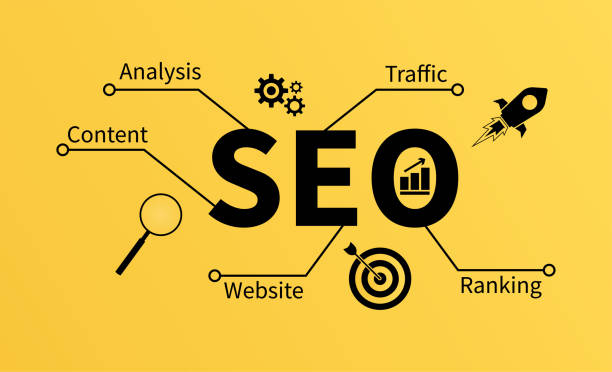
The world of SEO is a dynamic and constantly evolving field.
Search engines, especially Google, regularly update their algorithms to provide the best and most relevant results to users.
These updates can range from small, minor changes to large and impactful Core Updates that can significantly shift website rankings.
For success in SEO, keeping pace with these changes and understanding their underlying principles is crucial.
This section provides an analytical view of the dynamic nature of SEO.
The future of SEO also shows clear trends.
With advancements in artificial intelligence and machine learning, algorithms are becoming smarter every day, and their ability to understand the true meaning of searches and user intent is increasing.
Therefore, producing comprehensive and user-centric content will become even more important.
Voice Search and Image Search are also gradually taking a larger share of searches, requiring different SEO strategies such as optimizing for longer and conversational queries.
User Experience (UX) is another growing factor in SEO.
Factors such as page speed, mobile compatibility, and easy navigation not only affect user experience but also directly impact rankings.
Given these trends, SEO specialists must constantly be learning and adapting.
The future of SEO depends not only on technical techniques but also on a deeper understanding of user behavior and providing the best possible experience for them.
This is a continuous cycle of analysis, implementation, and evaluation.
Are you missing out on business opportunities because of an outdated website? With Rasawweb, permanently solve the problem of not attracting potential customers through your website!
✅ Attract more high-quality leads
✅ Increase brand credibility in the eyes of customers
⚡ Get a free corporate website design consultation!
Common SEO Mistakes and Solutions to Avoid Them

On the path to optimizing a website for search engines, mistakes can occur that not only delay results but can even harm your website’s ranking.
Understanding these mistakes and guidance on how to avoid them is very crucial.
One of the most common mistakes is spam link building or using Black Hat SEO techniques.
These methods include buying links, keyword stuffing, or creating low-quality content solely for search engines.
While they might yield short-term results, they ultimately face severe Google penalties, and website rankings drop sharply.
Neglecting user experience (UX) is also a big mistake.
A website that loads slowly, doesn’t display correctly on mobile, or has complex navigation will discourage users and have a high Bounce Rate.
These negative signals are sent to search engines and can damage your ranking.
Lack of comprehensive keyword research and choosing inappropriate or overly competitive keywords are other common mistakes that lead to wasted efforts.
Keywords must align with user search intent.
Producing duplicate or low-quality content is also a major obstacle to SEO success.
Search engines prefer unique, valuable, and comprehensive content.
Copying others’ content or producing poor quality content that doesn’t answer user questions not only doesn’t help your SEO but can harm it.
Ignoring technical SEO and not addressing issues like crawl errors, 404 pages, or XML sitemap problems can also prevent your pages from being indexed correctly.
Finally, a lack of patience for seeing SEO results, which is a specialized and long-term process, can lead to abandoning efforts midway.
Local SEO and its Importance for Physical Businesses

In addition to general SEO, Local SEO is of special importance for businesses that have a specific physical location and provide services to customers in a particular geographic area.
Local SEO helps you appear in search results for local users, such as “restaurants near me” or “plumbing services in [city name]”.
This type of SEO is extremely crucial for small and medium-sized businesses, such as shops, restaurants, clinics, and other local services.
One of the most important tools for Local SEO is Google My Business (GMB).
Creating and optimizing your GMB profile allows you to display your business information, including address, phone number, operating hours, and photos, directly in search results and Google Maps.
Managing customer reviews and responding to them is also very important in GMB, as positive reviews can increase the trust of potential customers.
Other important factors in Local SEO include consistency in NAP information (Name, Address, Phone Number) across all online directories, building local links from websites related to your city or region, and optimizing website content with local keywords.
For example, if you have a pastry shop in Tehran, you should use keywords like “Tehran pastry shop” or “best pastry shop on Valiasr Street” in your content.
Local SEO is a practical and specialized guidance for attracting physical customers and can have a direct impact on the sales and revenue of physical businesses.
By focusing on Local SEO, businesses can compete with larger competitors and increase their market share in the region.
Frequently Asked Questions
| Question | Answer |
|---|---|
| What is SEO? | Search Engine Optimization (SEO) is a set of practices aimed at increasing the visibility of a website or web page in unpaid (organic) search engine results. |
| Why is SEO important? | SEO is important because it increases organic (free) traffic to your site, leading to increased brand awareness, sales, and revenue. |
| What is the difference between On-page and Off-page SEO? | On-page SEO involves optimizing internal website elements such as content, keywords, and H1/H2 tags. Off-page SEO involves activities performed outside the website, such as building backlinks and social media marketing. |
| What are Keywords in SEO? | Keywords are the words or phrases people use to search for information in search engines. Choosing the right keywords is the foundation of any successful SEO strategy. |
| What is high-quality content in SEO? | High-quality content is unique, relevant, useful, and well-written content that meets user intent and provides real value to visitors. |
| What are Backlinks? | Backlinks are links from another website that point to your site. They are an important factor in search engine ranking because they indicate “trust” or “recommendation” from other sites. |
| What is the importance of website loading speed in SEO? | Website loading speed is an important factor for user experience, and search engines like Google prefer fast websites. Slow websites lead to high bounce rates and lower rankings. |
| What is Technical SEO? | Technical SEO involves optimizing the technical aspects of a website to help search engines crawl and index it more effectively. This includes Robots.txt file, Sitemap, Structured Data (Schema Markup), and Mobile-friendliness. |
| How can I track my SEO performance? | SEO performance can be tracked using tools like Google Analytics and Google Search Console to monitor organic traffic, keywords, best-performing pages, and technical errors. |
| How long does it take for SEO results to appear? | SEO results do not appear immediately. It usually takes 4 to 12 months to see tangible results, depending on competition, quality of implementation, and initial website status. SEO is a long-term investment. |
And other services of Rasawweb Advertising Agency in the field of advertising
Smart Social Media: A combination of creativity and technology to increase click-through rates by precise audience targeting.
Smart Advertorials: A dedicated service for increasing website traffic based on real data utilization.
Smart Advertising Campaign: Professional optimization for customer acquisition using key page optimization.
Smart Content Strategy: A professional solution for campaign management focusing on marketing automation.
Smart Link Building: Professional optimization for customer behavior analysis using intelligent data analysis.
And over hundreds of other services in the field of internet advertising, advertising consultation, and organizational solutions
Internet Advertising | Advertising Strategy | Advertorials
Sources
? Are you ready for your business to shine in the digital world? “Rasawweb Afarin”, a leading digital marketing agency, is your guide to reaching the peaks of online success by offering comprehensive services including professional WordPress website design, SEO, and content marketing.
📍 Tehran, Mirdamad Street, next to Bank Markazi, Southern Kazeroon Alley, Ramin Alley, No. 6

